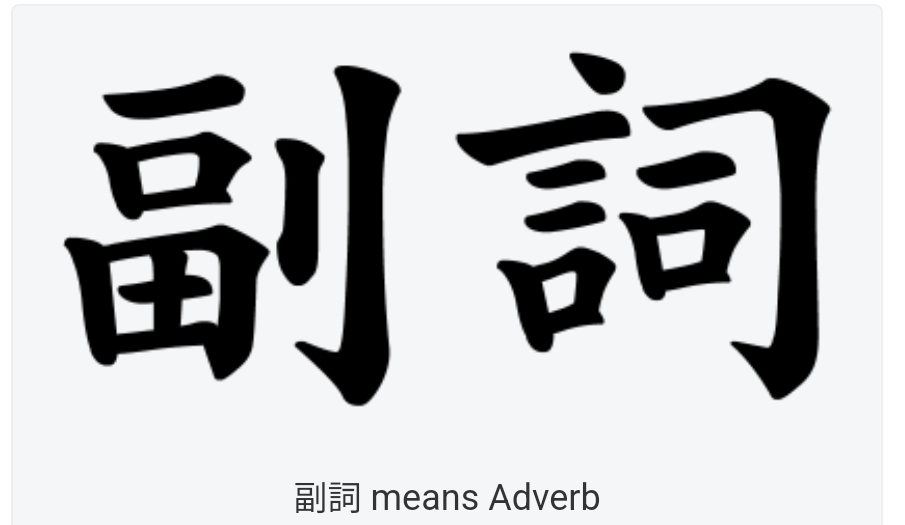1. Today's topic
Japanese Adverbs: A Beginner's Guide
Adverbs in Japanese modify verbs, adjectives, or other adverbs, providing additional information about the action, state, or degree. Here are some common Japanese adverbs for beginners:
Basic Adverbs of Frequency
* いつも (itsumo): always
* よく (yoku): often
* 時々 (tokidoki): sometimes
* たまに (tama ni): occasionally
* あまり (amari): not much
* 決して (keshite): never
Adverbs of Manner
* 早く (hayaku): quickly
* ゆっくり (yukkuri): slowly
* よく (yoku): well
* 上手 (jōzu): skillfully
* 下手 (heta): poorly
Adverbs of Degree
* とても (totemo): very
* かなり (kanari): quite
* 少し (sukoshi): a little
* 全然 (zenzen): not at all
* 完全に (kanzen ni): completely
Adverbs of Time
* 今 (ima): now
* 早く (hayaku): early
* 遅く (osoku): late
* 明日 (ashita): tomorrow
* 昨日 (kinō): yesterday
Adverbs of Place
* ここ (koko): here
* そこ (soko): there
* どこ (doko): where
* 上 (ue): above
* 下 (shita): below
Example Sentences:
* 私はいつも学校に行きます。 (Watashi wa itsumo gakkō ni ikimasu.) - I always go to school.
* 彼はとても上手なサッカー選手です。 (Kare wa totemo jōzu na sakkā senshu desu.) - He is a very skilled soccer player.
* 私は少し疲れています。 (Watashi wa sukoshi tsukareteimasu.) - I am a little tired.
Remember that adverbs can often be placed in various positions within a sentence, but the most common placement is after the verb or adjective they modify.
A Deeper Dive into Japanese Adverbs
Adverbs in Japanese can modify verbs, adjectives, or other adverbs, providing additional information about the action, state, or degree. Here's a more in-depth look at their usage and nuances:
Placement and Usage
* Modifying Verbs: Adverbs typically precede the verb they modify.
* 彼は早く走った。 (Kare wa hayaku hashitta.) - He ran quickly.
* Modifying Adjectives: Adverbs can also modify adjectives, often placed before the adjective.
* これはとても美味しいです。 (Kore wa totemo oishii desu.) - This is very delicious.
* Modifying Other Adverbs: Adverbs can modify other adverbs for added emphasis.
* 彼は非常にゆっくり歩いた。 (Kare wa hijō ni yukkuri aruita.) - He walked extremely slowly.
Types of Adverbs
* Frequency Adverbs: Indicate how often an action occurs.
* いつも (itsumo): always
* 時々 (tokidoki): sometimes
* 決して (keshite): never
* Manner Adverbs: Describe how an action is performed.
* 早く (hayaku): quickly
* よく (yoku): well
* 丁寧に (teinei ni): carefully
* Degree Adverbs: Modify the intensity or extent of an action or state.
* とても (totemo): very
* かなり (kanari): quite
* 少し (sukoshi): a little
* Time Adverbs: Indicate when an action occurs.
* 今 (ima): now
* 昨日 (kinō): yesterday
* 明日 (ashita): tomorrow
* Place Adverbs: Indicate where an action occurs.
* ここ (koko): here
* そこ (soko): there
* どこ (doko): where
Special Adverbial Phrases
* Negative Adverbs: Often combined with negative verbs to express negation.
* 全然 (zenzen): not at all
* まったく (mattaku): not at all
* Emphatic Adverbs: Used to emphasize a point.
* 確かに (tashika ni): certainly
* 絶対に (zettai ni): absolutely
Example Sentences:
* 彼はとても丁寧に手紙を書きました。 (Kare wa totemo teinei ni tegami o kakimashita.) - He wrote the letter very carefully.
* 私は全然食べません。 (Watashi wa zenzen tabemasen.) - I don't eat at all.
* 絶対に忘れません。 (Zettai ni wasuremasen.) - I will never forget.
Would you like to practice using adverbs in more complex sentence structures?
2- Today’s news
SUMO/ Rising star Onosato grapples with ‘topknot challenge’
https://www.asahi.com/sp/ajw/articles/15441485
Factory-turned Nintendo Museum fuses history and play
https://www.asahi.com/sp/ajw/articles/15441682


No comments:
Post a Comment